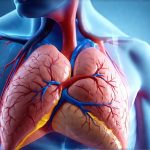Gastroesophageal reflux disease (GERD) is a surprisingly common condition affecting millions worldwide, often manifesting as frequent heartburn or acid indigestion. However, its impact extends far beyond just uncomfortable digestive symptoms. While many associate GERD primarily with burning sensations in the chest, it can significantly disrupt an individual’s relationship with food – impacting not only when and how much they eat but also their body’s ability to effectively absorb essential nutrients. This often-overlooked consequence of chronic acid reflux can lead to a cascade of health concerns if left unaddressed, diminishing overall well-being and potentially contributing to deficiencies over time.
The subtle ways GERD interferes with appetite and nutrient uptake are frequently underestimated by both those experiencing the condition and sometimes even healthcare professionals. It’s not simply about avoiding trigger foods; it’s about how the persistent inflammation and physiological changes induced by reflux alter the entire digestive process, from initial hunger cues to the final stages of nutrient extraction in the small intestine. This article will explore these intricate connections, shedding light on the mechanisms behind GERD’s influence on appetite regulation and its subsequent effects on nutritional status, providing a comprehensive understanding for those navigating this challenging condition.
The Interplay Between GERD and Appetite
GERD doesn’t just cause physical discomfort; it can fundamentally alter how we experience hunger and satiety. This disruption stems from several interconnected factors. Firstly, the constant irritation of the esophagus by stomach acid leads to esophagitis, inflammation that can affect nerve function and signaling pathways involved in appetite regulation. – Chronic pain and discomfort associated with GERD itself can lead individuals to avoid eating altogether, or to eat less frequently, fearing symptom exacerbation. This creates a negative feedback loop where reduced food intake worsens reflux as an empty stomach offers less buffering capacity for acid production. – The psychological association of food with unpleasant symptoms also plays a major role; many people with GERD develop anxiety around mealtimes, further suppressing their appetite. How to deal with the anxiety can be helpful in these situations.
Furthermore, medications used to manage GERD – particularly proton pump inhibitors (PPIs) – can sometimes contribute to altered appetite. While effective at reducing acid production, PPIs have been linked in some studies to changes in gut microbiota and nutrient absorption (discussed later), which may indirectly impact hunger signals. It’s important to remember that this is a complex relationship; the effect of medication varies between individuals, but it’s another piece of the puzzle when considering appetite fluctuations. Beyond psychological factors, the physical discomfort experienced after eating can lead to conditioned aversion, where specific foods or even the act of eating itself triggers anticipatory nausea and reduced desire for food.
Finally, GERD-related inflammation isn’t limited to the esophagus. It can extend to the stomach and duodenum, impacting gastric emptying and hormonal regulation of appetite. Hormones like ghrelin (which stimulates hunger) and leptin (which signals satiety) are affected by the digestive process and can be disrupted in individuals with chronic reflux, further contributing to irregular eating patterns. This complex interplay between physical symptoms, medication side effects, and hormonal imbalances makes it clear that GERD isn’t just a digestive issue; it’s a systemic condition with far-reaching consequences for appetite control. How stress can also play a role in these conditions.
Nutrient Absorption Complications in GERD
The impact of GERD extends beyond simply reducing how much someone eats. Even when individuals are able to consume adequate amounts of food, the chronic inflammation and altered digestive environment can significantly impair nutrient absorption. The primary issue lies in the disruption of the normal enzymatic processes required for breaking down food and extracting vital nutrients. – Chronic acid suppression with PPIs, while beneficial for managing reflux symptoms, can reduce the acidity necessary for optimal absorption of certain vitamins and minerals like vitamin B12, iron, calcium, and magnesium. These nutrients rely on stomach acid to be converted into forms that are easily absorbed by the small intestine. – Inflammation caused by GERD also damages the intestinal lining, reducing its surface area and impairing the ability to absorb nutrients effectively. This is particularly problematic for fat-soluble vitamins (A, D, E, K), which require a healthy intestinal environment for absorption.
Moreover, if GERD leads to bacterial overgrowth in the small intestine (SIBO) – a common complication – it further exacerbates malabsorption issues. SIBO occurs when bacteria migrate from the colon into the small intestine where they shouldn’t be, consuming nutrients before the body has a chance to absorb them and creating gas and bloating that can worsen GERD symptoms. The combined effects of reduced acidity, inflammation, and potential bacterial overgrowth create a challenging environment for nutrient absorption, potentially leading to deficiencies even with a seemingly balanced diet. Addressing these complications requires a multifaceted approach focusing on both symptom management and strategies to support optimal nutrient uptake. Understanding how digestive enzymes work can also be beneficial.
Addressing Nutrient Deficiencies
Identifying and addressing nutrient deficiencies is crucial for individuals with chronic GERD. It’s important to work with a healthcare professional to determine which nutrients may be lacking through blood tests and dietary assessment. – Supplementation can be helpful, but it’s not always the answer. The form of the supplement matters; for example, methylcobalamin is often better absorbed than cyanocobalamin in individuals with GERD due to impaired B12 absorption. – Dietary modifications are equally important. Focusing on nutrient-dense foods and prioritizing easily digestible options can help maximize intake even when absorption is compromised.
Beyond specific supplements, optimizing digestive health plays a vital role. This includes strategies such as: 1. Incorporating probiotic-rich foods or supplements to support gut microbiome balance. 2. Considering enzyme supplementation (under medical guidance) to aid in the breakdown of food if pancreatic insufficiency is suspected. 3. Addressing SIBO, if present, through dietary changes and potential antibiotic therapy prescribed by a physician. It’s crucial to remember that self-treating nutrient deficiencies can be dangerous; always consult with a healthcare professional before starting any new supplement regimen. Keeping gut health simple is key.
The Role of Dietary Modifications
Dietary changes are often the first line of defense in managing GERD symptoms and mitigating their impact on appetite and absorption. While individual triggers vary, some general guidelines can be helpful. – Avoiding common reflux triggers like caffeine, alcohol, chocolate, fatty foods, spicy foods, and acidic fruits/vegetables is a good starting point. However, elimination diets should be approached cautiously to avoid unnecessary restrictions and potential nutrient deficiencies. – Eating smaller, more frequent meals can reduce the pressure on the lower esophageal sphincter (LES) and minimize reflux episodes. This also allows for better digestion and nutrient absorption as the digestive system isn’t overwhelmed by large quantities of food at once.
Focusing on foods that support gut health is equally important. – Incorporating fiber-rich foods like whole grains, fruits, and vegetables promotes healthy bowel movements and supports a balanced gut microbiome. – Including fermented foods like yogurt (if tolerated), kefir, and sauerkraut provides beneficial probiotics. – Staying hydrated by drinking plenty of water aids in digestion and nutrient transport. Dietary modifications should be personalized based on individual tolerance and guided by a healthcare professional or registered dietitian. How to rebuild appetite after gut stress can improve dietary intake.
Long-Term Management Strategies
Managing GERD effectively requires a long-term approach that addresses both symptoms and underlying causes. Lifestyle modifications, dietary changes, and appropriate medication management are all essential components of this strategy. – Maintaining a healthy weight can reduce pressure on the abdomen and LES, minimizing reflux episodes. – Elevating the head of your bed during sleep can help prevent nighttime reflux. – Avoiding eating close to bedtime allows for better digestion before lying down.
Regular monitoring with a healthcare professional is crucial to assess symptom control, identify any emerging nutrient deficiencies, and adjust treatment plans as needed. It’s important to remember that GERD is often a chronic condition requiring ongoing management; however, with proactive care and attention to both appetite and nutrient absorption, individuals can significantly improve their quality of life. Open communication with your healthcare team is vital for navigating this complex condition effectively and ensuring optimal health outcomes. Additionally, understanding how GERD affects your throat can help you recognize warning signs and manage symptoms proactively. Finally, consider the impact of stress on liver function as it relates to overall digestive health.


















